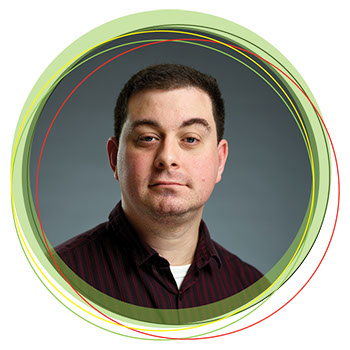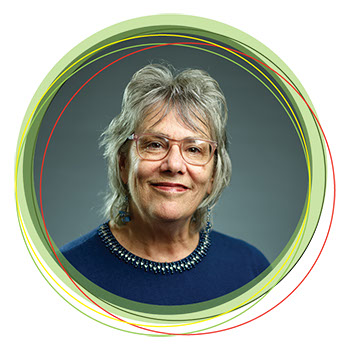From toddlers with phonological disorders to teenagers reading below grade level, many people are at risk of not attaining the language skills required to succeed in school and life. University of Redlands is preparing students to diagnose, solve, and alleviate these issues, with a focus on addressing the needs of sometimes-overlooked populations.

Solaman Cooperson, professor of communication sciences and disorders, brings his expertise and experience of studying Spanish-English bilingual children to the speech-language pathology master’s program. While bilingual children are not believed to have higher rates of language disorders, they can be more complicated to diagnose, Cooperson says. Errors of grammar and pronunciation may be signs of a disorder needing treatment—or may simply reflect the normal trajectory of a child mastering two languages.
“By following children over time or looking at certain language and speech features more in depth, you may be able to tell the difference,” says Cooperson. As with all children who have a language disorder, early diagnosis and treatment is crucial to prevent them from falling further behind in verbal and written language development.
For graduate student Esmeralda Herrera ’21, a volunteer experience at a hospital confirmed she wanted a career in speech pathology, and being fluent in both English and Spanish would improve her ability to help clients. She appreciates that the Redlands program leading to a Specialty Certificate in Bilingual Speech-Language Pathology: Spanish Language Focus covers not just separate languages, but also dialectic differences within a language.
“Even my classmates who aren’t bilingual will likely go on to encounter linguistically diverse clients,” says Herrera, “and I feel that [Redlands] students are better equipped to work with these clients [due to the curriculum].”
Understanding diversity—not just of language but also of experience and political identity—is essential to teaching the language arts, says Professor M. Alayne Sullivan, chair of the School of Education’s Department of Learning and Teaching. Sullivan emphasizes the value of “literature response,” a mode of teaching based on recognizing that each student’s background shapes how he or she might interpret a work.

Her teaching philosophy is influenced by the writings of Brazilian educator and philosopher Paulo Freire, who in the late 20th-century argued for education as a means of empowering marginalized students. He prescribed a method that encourages students to ask questions—instead of being passive recipients of knowledge—and a curriculum that affirms the humanity of disadvantaged people. His most famous work, Pedagogy of the Oppressed (published in English in 1970), is widely cited as a model for educators in the United States and throughout the world.
Echoes of Freire´s ideas can be heard in Sullivan’s 2015 book, A Lesson Before Teaching, about her experiment using literature response with a group of 18-year-old high school graduates. Despite their diplomas, the 77 graduates didn’t have the skills necessary to enter college. Sullivan led an intensive five-week course in which they read, analyzed, and discussed Ernest Gaine’s A Lesson Before Dying, a novel about a black man falsely convicted of murder.
The story resonated with the students, many of them people of color, and Sullivan created an environment simultaneously supportive and challenging, pushing them to engage rigorously with the novel. By the end of the five weeks, the students’ reading comprehension scores had risen by two to seven grade levels—a result that astonished even Sullivan.
She says, “Their whole facility with language, with reading, even with writing and speaking, all went through a very intense refinement process by virtue of their involvement in that particular book.”
Learn more about studying communication sciences and disorders or education at the University of Redlands.






